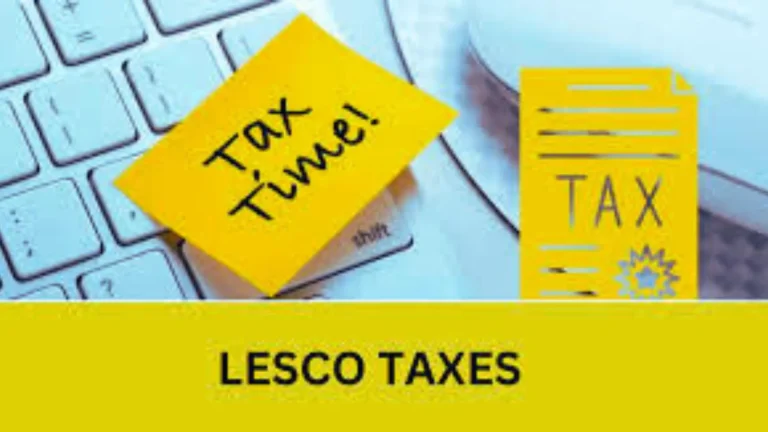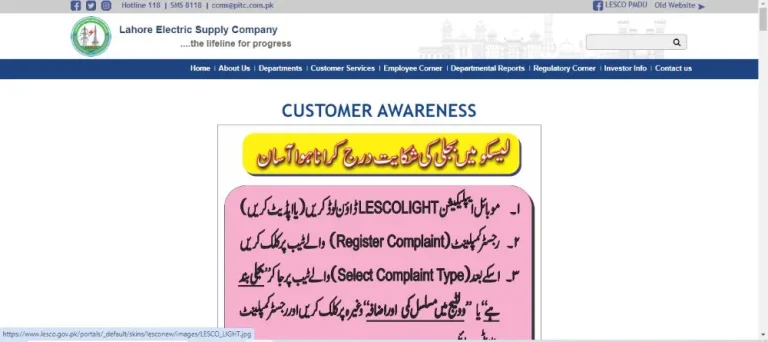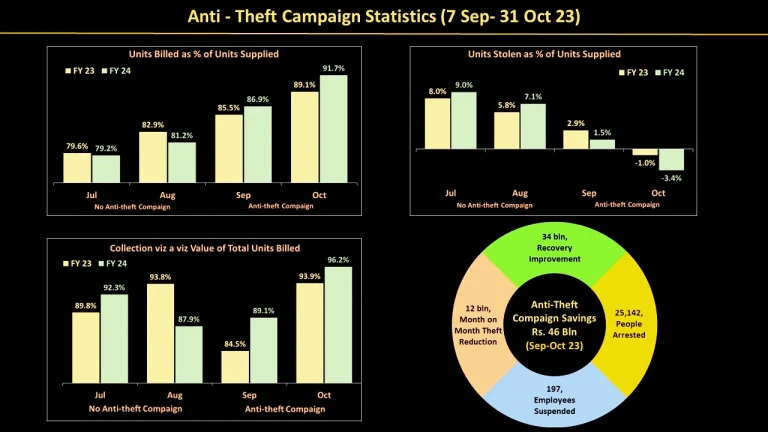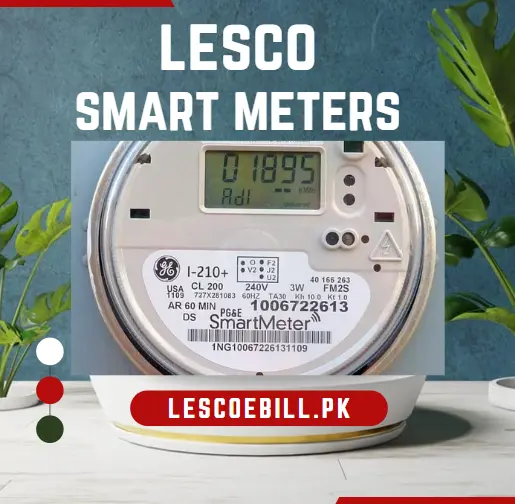LESCO Detection Bill
Do you want to know about the LESCO Detection Bill? Everyone wanted to know about it. It is a common question nowadays. Here we will discuss it and how it is served.
A detection bill is served to consumers who indulge in ill-legal activities like power theft through direct hooking, slowness of the meter or tempering of the electric meter.
An assessment bill is prepared and served to the consumer on account of less billing due to some technical or administrative grounds. This bill is called a detection bill.
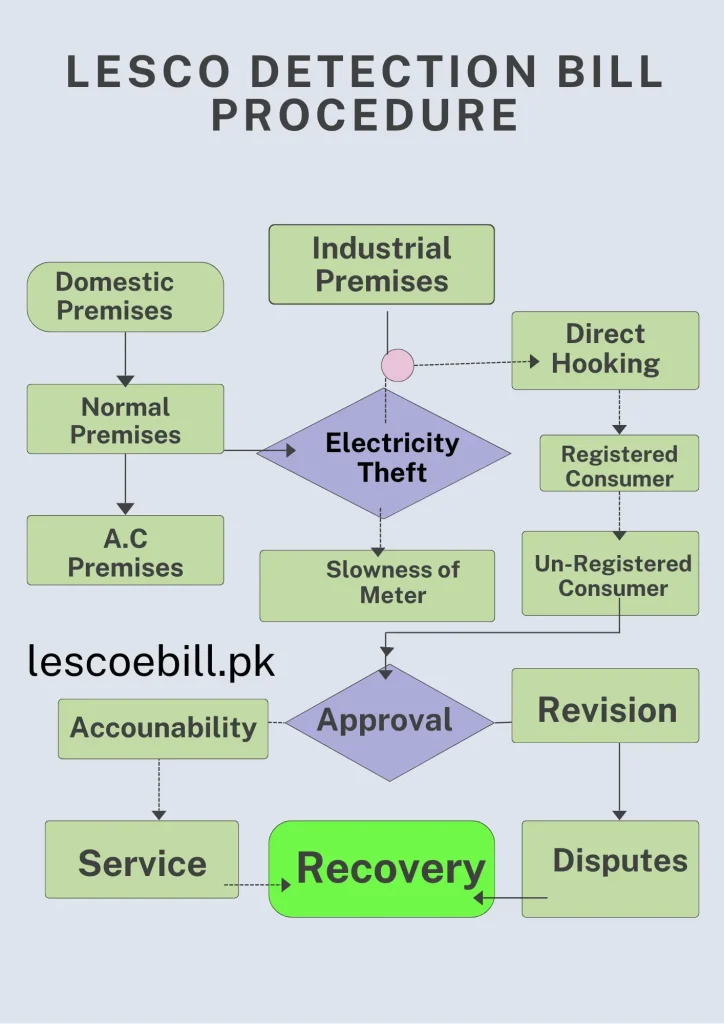
Now you can easily check your Duplicate Bill Online for Free by visiting Bill Check Online.
Detection Billing for Power Theft
There are some rules which it have to follow before preparing and serving this Bill. we will discuss them as under:
Domestic Premises
These decisions will apply to single-phase and three-phase domestic users. Single-phase commercial users only.
If you are not satisfied with its Services, you can register a complaint against it at the official website, to know how to complain visit the Complaint Management System.
Normal Premises
A three-month bill will be charged to the consumers. Any detection beyond 3 months will be recovered from its Employees or Employees at fault.
A.C Premises
A 6-month bill will be charged to the consumers. Any detection beyond 6 months will be recovered from the concerned employee.
Industrial Premises
Industrial connections and three-phase commercial connection cases will be decided by the competent authority accordingly.
LESCO Detection Bill: Detailed Procedure for Direct Hooking
If consumers are involved in the theft of electricity by direct hooking they will be served this bill. The criteria for serving it to these consumers are as follows
For Registered Consumers
Registered consumer means having an electricity meter installed at his premises. If such consumers are involved in the theft of electricity, they will be dealt with as follows:
If a consumer is involved in using direct supply from Lines, he will be prosecuted under Sections 39 and 39 A of the Electricity Act 1910. An FIR will be lodged against such consumers. To compensate for the loss sustained by such consumers a bill will be served under Section 48 of Electricity Act 1910.
To find out the electricity consumed during this period, Section 26-A of the Electricity Act 1910 will be followed strictly. The owner or occupier of the premises involved in this illegal act of power theft will be liable to pay this bill. The bill will be served to these and they will be made to pay this bill.
For Un-Registered Consumers
If a person has no electricity meter installed at his premises, will be referred to as an Unregistered Consumer.
Authorised Representative of Detection/Serviliance Teams of Inspecting Officers, who observe the consumers are consuming energy without a meter and by direct hooking from main lines. They will have to report this to the concerned SDO, X.E.N, SE and Chief Executive Officer for necessary action.
Because they have no billing history or registration number with LESCO, the SDO would allot a Universal Reference Number for billing purposes. The structure of this number will be as the first 4 digits represent Sub Division Code, then adds 3 digits of figure 8 followed by 4 digits consisting of 0001. These last 4 digits would increase as the number of consumers goes on increasing.
We can explain it with an example, if a bill is issued for Gulberg Sub Division no 1 Lahore, its Universal Reference Number for the first consumer will be 1511 8880001, 1511 8880002 for 2nd consumer and so on.
The S.D.O will fill in this proforma for the bill, and competent authority will approve it. After that, he should pass on to the revenue officer for feeding relevant input to W.C.C.
The Revenue Officer will arrange entry in the input form and send it to the computer centre for billing.
The computer will generate an electricity bill and send it to the Revenue Officer to arrange the delivery to the consumer.
SDO and RO will pursue the recovery with the help of all concerned officers.
Detection Billing on Account of Slowness
Sometimes electrical meters are slowed down either by any technical or mechanical fault or by tempering by consumers. They show low readings while consumption is high and make a loss. The slowness of a meter is detected either by a check meter or by getting tested by any other meter testing equipment. It should be detected in one or two reading cycles.
If it is not done by the consumer, maybe no high bill be charged and the meter will be replaced as soon as possible.
The amount of energy provided to the consumer and the duration of supply will be decided based on the check meter readings, consumption habits, sanctioned load, and other relevant factors.
If slowness is noticed within one or two reading cycles, the bill will be issued with the permission of the load-sanctioning authority. The CEO will be the final authority in all cases.
If the slowness of the meter is not detected in one reading cycle or two, the bill will be charged after obtaining approval from the competent authority.
Approval of Bill
The authority responsible for approving the bill will be the one immediately after the load-sanctioning authority. If the Chief Executive Officer or above is the load sanctioning authority, then the Chief
Executive Officer will be a competent authority.
A bill recommended by the surveillance team will be served only after the approval of the competent authority.
Accountability
Whenever a competent authority, receives this type of bill for a period of exceeding three months, for approval. The authority will ask for a fixation of responsibility for negligence. However, the approval will not be held for the fixation of responsibility.
Service of Detection Bill
Once a competent authority approves the bill, the information will be forwarded to the relevant Revenue Officer. He will serve the bill to the consumer along with all the details. The Revenue Officer will feed the detection amount to the computer through a prescribed proforma. The computer will generate a separate bill without adding it to the regular monthly bill. Only the Revenue Officer is authorised to issue a bill and therefore, manual preparation of the bill should be avoided.
Revision of This Bill
Normally there is no need to revise such a bill because utmost care is taken in preparation for it. But in some cases, if the consumer demands it through a proper forum. A review committee will be formed by the competent authority. The committee will review the bill and at the same time, it will propose disciplinary action against those who prepared the bill.
The criteria for creating the committee are as follows:
For review of the bills approved by the XEN
- Concerned Superintending Engineer ( Convener )
- Circle Manager ( Member )
- Concerned XEN ( Member )
Note: The concerned Superintending Engineer and one Member will make the quorum.
For a review of bills approved by the Superintending Engineer or the Chief Executive Officer.
- Chief Executive Officer of the concerned DISCO ( Convener )
- Regional Manager ( Member )
- Concerned Superintending Engineer ( Member )
Note: The Chief Executive Officer and a member of the committee will constitute the quorum
Meetings of the review committees will be held after 15 days or twice a month.
You can verify all information about the Detection Bill at the Official Site. To get more information about electricity open the official site of NEPRA
Litigation/Disputes on Such Bills
Electricity Act, 1910, and the Regulations of Generation, Transmission, and Distribution of Electric Power Act (XL of 1997) do not give Electric Inspectors of Provisional Governments the authority to handle complaints or make decisions about bills related to energy theft under Section-26-A of the Electricity Act, 1910.
The amount of the bill will be collected in the current monthly bill but there are two conditions to exclude it from monthly bills.
Recovery of Such Bills
If a consumer doesn’t pay such bills on time, the usual procedures for collecting overdue payments, including disconnection for non-payment, will be followed.

